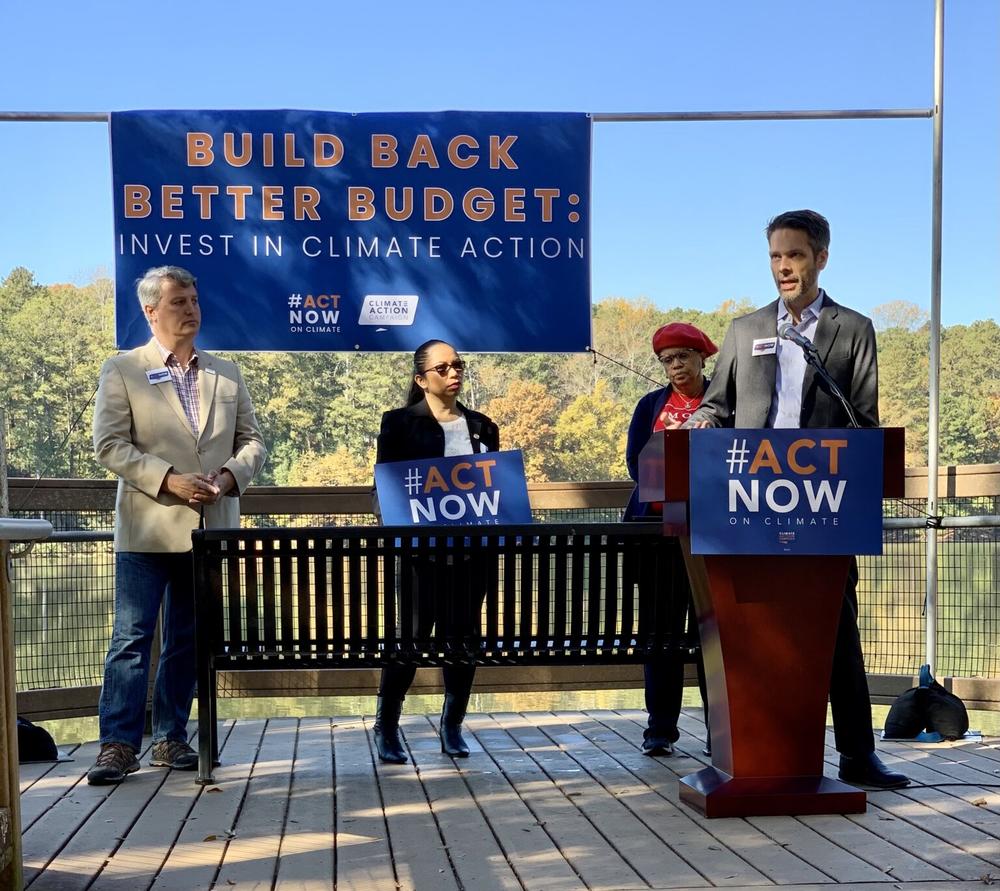
Caption
Doraville Mayor Joseph Geierman calls on Congress to pass the Build Back Better Act, which will provide significant resources to slow down climate change. A press conference was held at Brookhaven’s Murphey Candler Park with, left to right, by Brookhaven Mayor John Ernst, Cobb County Sustainability’s Arjho Turner, and Moms Clean Air Force’s Almeta Cooper.
Credit: Stanley Dunlap/Georgia Recorder

